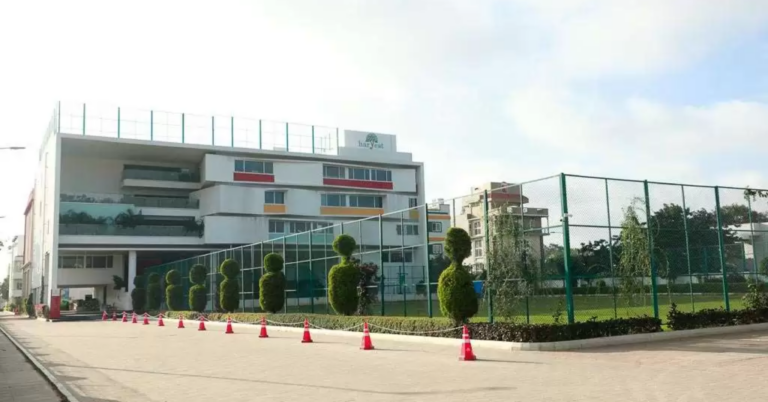The Importance of a Food Safety Course: Ensuring Hygiene and Compliance in the Food Industry
Food safety is a crucial aspect of the food industry, ensuring that consumers receive safe and hygienic food. Whether you are a restaurant owner, chef, caterer, or food handler, maintaining high food safety standards is essential. One of the best ways to ensure compliance with food safety regulations is by taking a Food Safety Course. This article explores the importance of food safety training, its benefits, and how enrolling in a professional course can enhance your career in the food industry.
Why is Food Safety Important?
Foodborne illnesses are a significant public health concern. Contaminated food can cause severe health issues, leading to hospitalizations and, in some cases, fatalities. Proper food safety measures prevent contamination, reduce health risks, and enhance the overall quality of food. Some key reasons why food safety is essential include:
- Prevention of Foodborne Diseases – Proper handling, storage, and preparation of food help prevent the spread of harmful bacteria and viruses.
- Compliance with Regulations – Most countries have strict food safety laws, and businesses must comply with them to operate legally.
- Enhancing Customer Trust – Safe food practices lead to better customer satisfaction and trust in food businesses.
- Reducing Food Waste – Proper food safety measures help in reducing spoilage and wastage, thus saving money and resources.
What is a Food Safety Course?
A Food Safety Course is a structured training program designed to educate food handlers, chefs, restaurant owners, and hospitality professionals on best practices for handling food safely. These courses cover various topics such as:
- Food hygiene and sanitation
- Safe food handling practices
- Personal hygiene for food handlers
- Proper food storage and temperature control
- Preventing cross-contamination
- Understanding foodborne illnesses
- Compliance with food safety laws and regulations
Completing a food safety course helps individuals gain the necessary knowledge and skills to maintain high safety standards in their workplace.
Benefits of Taking a Food Safety Course
1. Improved Food Handling Skills
One of the primary benefits of a food safety course is that it equips food handlers with the skills needed to store, prepare, and serve food safely. Understanding the principles of food hygiene reduces the risk of contamination and enhances food quality.
2. Compliance with Legal Requirements
Food businesses must adhere to local food safety regulations. Many regulatory bodies require food handlers to complete a certified food safety course to ensure compliance with health and safety laws.
3. Career Advancement Opportunities
Professionals in the food and hospitality industry can boost their career prospects by completing a food safety course. Many employers prefer hiring individuals with formal food safety certification, as it demonstrates competence and responsibility in maintaining hygiene standards.
4. Enhanced Reputation and Customer Confidence
Businesses that prioritize food safety training create a positive reputation in the market. Customers are more likely to trust and return to food establishments that uphold high hygiene standards.
5. Cost Savings and Waste Reduction
Food safety training helps businesses prevent food spoilage, cross-contamination, and wastage. Proper food handling reduces financial losses due to spoiled inventory and potential legal fines for non-compliance.
Who Should Take a Food Safety Course?
Food safety training is beneficial for anyone working in the food industry, including:
- Restaurant owners and managers
- Chefs and kitchen staff
- Caterers and event planners
- Food delivery personnel
- Supermarket and grocery store staff
- Food manufacturers and processors
If you are involved in handling or preparing food, enrolling in a Food Safety Course can help you meet industry standards and ensure customer safety.
What to Expect in a Food Safety Course?
Food safety courses typically include both theoretical and practical training. The course content is designed to help learners understand the fundamental principles of food hygiene. Some key elements covered in the course include:
- Understanding Foodborne Illnesses: Learning about common foodborne pathogens, their causes, and how to prevent contamination.
- Food Handling and Storage: Proper methods to store perishable and non-perishable food items to prevent spoilage.
- Cleaning and Sanitization: The importance of maintaining a clean kitchen and work environment.
- Pest Control in Food Establishments: Effective measures to prevent pest infestations in food facilities.
- HACCP (Hazard Analysis and Critical Control Points): A systematic approach to identifying and controlling food safety hazards.
- Food Safety Laws and Regulations: Understanding legal requirements and compliance standards.
Choosing the Right Food Safety Course
When selecting a food safety course, it is essential to choose a reputable training provider that offers accredited certification. Here are some factors to consider:
- Accreditation: Ensure the course is recognized by relevant health and food safety authorities.
- Course Content: Look for a course that covers all essential aspects of food safety and hygiene.
- Training Format: Some courses are available online, while others offer in-person training. Choose the one that best suits your schedule.
- Certification Validity: Check the validity period of the certification and whether refresher courses are required.
Final Thoughts
A Food Safety Course is an essential investment for anyone working in the food industry. It not only helps prevent foodborne illnesses but also ensures compliance with legal regulations and enhances business reputation. By enrolling in a certified food safety course, food handlers and business owners can build a strong foundation for maintaining hygiene standards and providing customers with safe and high-quality food.
If you are looking to enhance your food safety knowledge and improve your career prospects, consider enrolling in a professional Food Safety Course today. With the right training, you can contribute to a safer and healthier food industry!







